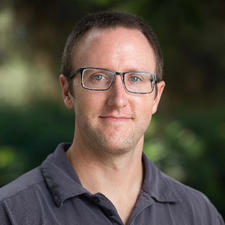The Basic Energy Sciences program of the U.S. Department of Energy has renewed a grant to Michael Mulligan, an assistant professor of physics and astronomy. The three-year grant of $370,000 will support research by Mulligan and UCR graduate students in quantum condensed matter theory.

The Basic Energy Sciences program supports basic scientific research to lay the foundations for new energy technologies, the goal being to better understand the physical world and harness nature to benefit people and society.
Mulligan explained that the primary emphasis of his research is the theoretical study of anomalous low-temperature metallic behaviors using quantum field theory dualities. Duality is the ability to describe the same physical system in two or more different ways.
“We will study theoretically the interplay of ‘quenched disorder’ — a result of the ever-present impurities in a real solid — with electron-electron interactions,” said Mulligan, the grant’s principal investigator. “Another focus is the study of quantum entanglement in many-body systems.”
Quantum entanglement is a phenomenon in which quantum-correlated particles stay connected in such a way that an action performed on one of the particles affects the other, regardless of the distance between the two particles.
“In recent years, there's been a lot of work towards understanding how this ‘spooky action at a distance’ provides a complementary measure that can constrain the different possible behaviors of interacting electrons,” Mulligan said. “Our hope is that this work will improve our understanding of the possible emergent states of quantum matter.”